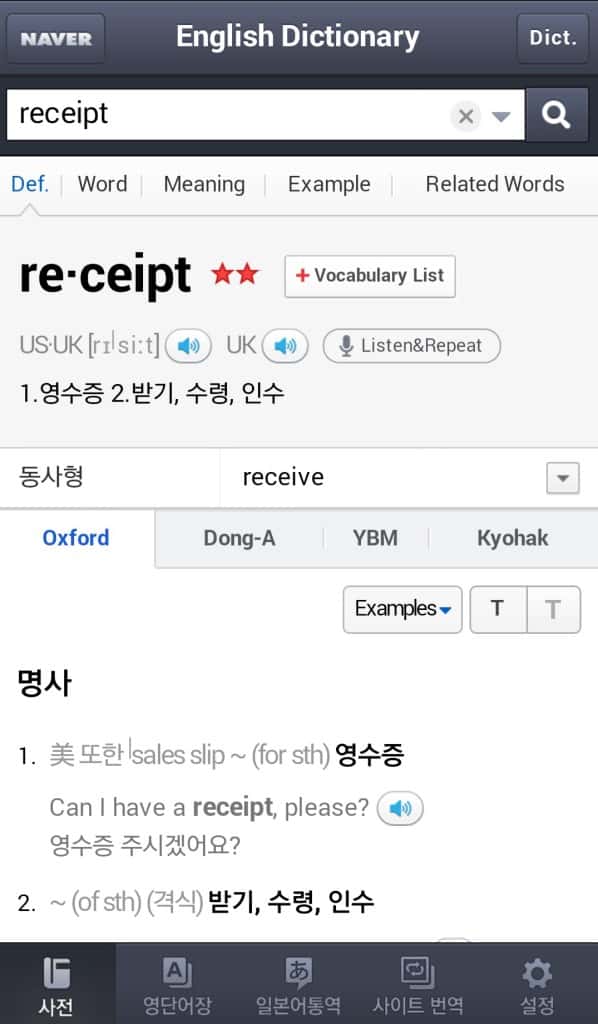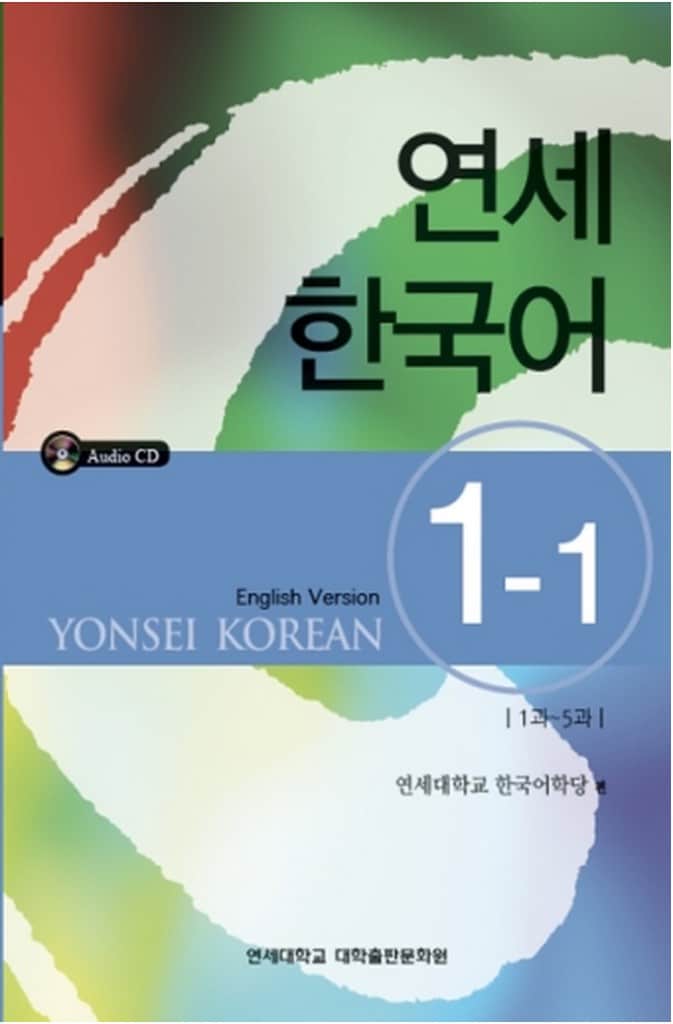When you hear the phrase “learn Korean”, what usually comes to mind?
For many, it’s years and years of formal study in a classroom.
For others, it means having to move to Korea to get familiar with how to speak in Korean.
And some people think it’s best left up to those those who have a natural gift for learning Korean.
Those are all true to some degree, but overall they’re unnecessarily difficult, excessive, and unrealistic.
There are other ways to learn Korean fast, and they don’t require large tuition fees, lifestyle changes, or superhuman powers.
The people who get good at learning Korean usually aren’t any different than you or I. If you talk to them and find out in detail what they did, you’ll notice a pattern of activities that they have done that helped them to learn Korean fast.
You can get the same results if you optimize your studies and make sure each minute you spend studying gets you the maximum return on your study investment.
Below we’ll share with you 14 fantastic tips to help you learn Korean fast. Pick and choose which ones you think will work for you, and take action! The faster you the implement these techniques, the faster you’ll be chatting with Koreans!
1. Learn Hangul
This point can’t be emphasized enough! Some people try to learn Korean by using Romanized Korean instead of learning the Korean alphabet (Hangul). For example:
Hangul: 커피
Romanized Korean: coffee
This system works OK if you are only learning a few words here and there. However, the benefits for learning the Korean alphabet are so massive, it almost always makes sense to spend the 60 minutes it takes to learn Hangul.
You can learn the Hangul for free in about 60 minutes by downloading the free Hangul guide here.

King Sejong made Hangul for YOU!
2. Stop Buying Phrasebooks
Store Korean phrasebooks here
If you’ve ever bought a phrasebook in a foreign language and had trouble getting the natives to understand you, then you already know all about this.
Korean phrasebooks are full of awkward words and expressions that Koreans don’t use. If you’re unsure of this, take a Korean to a local bookstore and look through the phrase books.
The other issue with phrasebooks is that many English expressions don’t translate into Korean the way you’d think they would. The phrases in these books sometimes are direct translations, instead of taking into account the differences in the languages. Therefore, you end up in mass confusion when you try to say even the simplest things.
You can use Korean phrases to compliment your studying, but make sure they are up to date so people will understand you more easily.
If you memorize some common phrases while you study, you’ll be able to learn Korean much faster. You’ll double up on your study effectiveness because you’ll 1) be studying the correct structures of the phrases, and 2) you’ll understand the structures of the phrases, allowing you to make changes and adjustments for different situations.
3. Use Flashcards Everyday
Mom always said “practice makes perfect”. She was right!
Everyone goes through ups and downs with studying. It’s natural.
The one thing you can do to make sure you always get in at least a little bit of studying each day is to use a flash card application, such as Anki, Quizlet, or Memrise.
We strongly recommend going with an SRS system so you can make your flashcards efficient as possible.
Follow Mom’s advice and use flash cards everyday
4. Use Korean Daily
Just like Mom in #3 above, your doctor also had some words of wisdom:
“An apple a day keeps the doctor away”.
We like doctors, we don’t to keep them away. The expression really means to “maintain good health”. Same with your Korean studies.
No matter where you are in the world, you likely have chances to use Korean daily. Some situations may be easier than others, but it’s always possible. You just have to be creative!
Here are a few ideas:
- Commute: If you live in Korea, make sure you engage people in Korean on your way to and from work. This could be ordering at the cafe, asking for your gimbap to go, asking the bus driver if the bus goes to your stop, or greeting the people at the front desk at your workplace.
- Spouse or partner: If you are dating a Korean, ask to speak in Korean as much as possible. Express your interest in learning the langue, and make an effort to learn at least a new word or two each time you see him or her. Your vocabulary and speaking ability will quickly shoot up!
- Pen pals: This will be explained more in detail in #9 but thanks to the Internet, you can connect with Koreans no matter where you live. Talk over email, the KakaoTalk messenger, or Skype.
- K-Pop: Download some Korean music and listen to a few songs each day. Make it active listening instead of passive by downloading the lyrics and singing along.
5. Screenshots Are Your Friend
One of the best ways to learn Korean fast is to actually use the words your’e studying.
So, it makes sense to study the words that you’d use most often.
Let’s say that you’re out and about one day, and you realize you want to know the word for “receipt”. You look it up in the dictionary on your smartphone, say “영수증” to the cashier, and then go on your way.

Speed up Korean learning with screenshots
It’s very likely you will forget that word unless you use it on a regular basis! A good strategy for helping you remember this word is to add it to your flash card deck.
But we all have busy lives, and it’s hard to do this during the busy parts of your day.
So instead, make sure you take a screenshot of the word when you look it up in the dictionary.
Then, when you have focused time to sit down and study Korean, you can go through your screenshots and add them to your deck of flash cards.
6. Enroll in a Course
If you want serious results from your Korean studies, then you need a solid plan.
As good ole’ Benjamin Franklin says:
“If you fail to plan, then you planning to fail”.
He made it onto the US $100 bill, so we trust his opinion!
Ben knows to study Korean!
There is a paradox with learning Korean. In order to learn Korean, you need to know the language so you can choose what content to study and how to study it. In order to know Korean, you have to learn it.
Just like the chicken and the egg, one is required for the other.
Or you can choose a Korean course from the chickens who know how to lay eggs!
There are a whole range of Korean learning programs out there, so make sure you pick one that supports your learning goals. You can look here for a guide on how to pick Korean courses. Or go here to find online-only courses.
You can also piece together a course from various Korean learning resources. Just make sure that you know what you’re doing so you can use your time most effectively.
7. Hit the Books
If you don’t intend to do an online or in-person course, at the very least you should consider getting a reputable series of Korean study books.
Here are three popular book series:

Yonsei University Korean Book
All of the books have their strengths and weaknesses, but generally you can’t go wrong if you pick a book that has a good reputation. Stay away from books that don’t have good reviews or are too dated. You don’t want to get embarrassed using old expressions!
8. Language Exchanges
A language exchange is a fun and interesting way to practice your Korean language skills. Not only do you get to exchange languages, but you can also exchange interesting points about each of your respective cultures.
Plus they are free! Your only cost is your time.
If you haven’t done a language exchange before, they’re typically done in a cafe for a set period of time at regular intervals. For example, you may meet for coffee twice a week for two hours. During the first hour, you may speak only in English. During the second hour, you might speak only in Korean.
There is an art to doing successful language exchanges! A few quick guidelines:
- Have material prepared. Bring books from your course or content that you want to review. If you promised to prepare something for your partner’s study time, make sure you follow through.
- Be reliable. Show up early and consistently. Give plenty of notice beforehand if you need to cancel.
- Don’t date. Although some people end up in romantic relationships as a result of language exchanges, it’s not always great for learning the language. The reason is, usually dating means the two of you will only talk in the language that is most comfortable for both of you. Choose your partner wisely.
So how to set up a language exchange?
With the increasing popularity of sites like meetup.com, it’s becoming easier and easier to do a language exchange anywhere in the world. A few ideas:
- If you live in Korea, you have no shortage of language exchange partners. Ask around through your social circle or go to language meets.
- Look for Korean language events on Meetup.com
- Search for English academies that have international students in your area. Tell them you want to do a language exchange with any Koreans that are interested in practicing your native language.
- Talk to the study abroad department at local universities and ask them to get you in touch with native Korean students.
- Find a pen pal and do Skype chats.
Make sure you use language exchanges as a supplement to a regular learning course and not in place of it. Otherwise, you won’t learn much and you’ll quickly feel like you’re wasting your time.
On the flip side, if you follow the suggestions above, you’ll see that it’s quite easy to learn Korean fast!
9. KakaoTalk Chatting
KakaoTalk is the most widely use messenger application in Korea. Koreans use as their main means of contacting people. Phone calls and SMS messages are rarely used anymore since KakaoTalk came into use.
This is the perfect way to practice your Korean! Since Koreans are already using the app, you an easily communicate with your Korean friends all the time.
If you don’t have Korean friends, there are ways to make them. Joining language exchanges or introductions through friends is one way. Another is through pen pal sites such as PenpalKorea or Korea4friend.
When you’re finding pen pals to communicate with, the key to success is to make sure you are bringing value to the other person. If you simply say “I want to practice my Korean”, that’s not very valuable for your pen pal. He or she may be nice and talk with you for a short while, but you may not get many responses soon after.
A better strategy would be to say something like:
“Hey future pen pal, I noticed you’re learning X language! Very cool, that’s my native tongue, so I’m happy to hear you’re learning it. I’m learning Korean and I’m looking for a practice partner. Would you be interested in doing a language exchange? We could be pen pals over KakaoTalk, since I know that’s what is popular in Korea. If you ever want to practice X language or have questions about my country, I’d be happy to answer them. And of course if you are ever coming here for a visit, let me know and I’ll show you a great place for lunch!”
Plan your strategy to find a Korean language study partner
Much more appealing and both people benefit. You will learn Korean fast, and your partner gets access to an expert on your native language (you!).
10. Ask Around
Don’t just join a Korean language course because it has a flashy smartphone application or because it is the first one you saw on a Google search.
Instead, figure out what has worked for other people you know. Ask friends, participate in Facebook groups, and search on the internet. Give Korean language programs a test drive before you enroll in them. You want to make sure that the program fits your goals and it’s taught in a way you find interesting.
11. Make Studying Fun
Studying shouldn’t be all grammar and vocabulary. You need to mix in things that will keep your language learning journey interesting so you stay motivated.
Read Korean books or comic books, watch Korean TV shows and movies, and talk to Koreans!
And even if you don’t have Koreans to chat with, find a language partner who is studying Korean so you can help each other practice.
You’ll learn Korean much faster if you actually put things into practice. You’ll be amazed at how much quicker you learn a word when you read it, write it, speak it, and listen to someone say it.
12. Break Down Words
One fun way to help learn Korean words quickly is to break them down into components. You end up learning a bunch of new words all at the same time!
For example, let’s say you want to learn the word for “eraser” in Korean. The word is “지우개”.
“지우개” doesn’t sound ANYTHING like “eraser”. What to do?
Well, you can try breaking the words down into simpler forms.
For example:
- 지우 = means “to erase” (지우다 is the base verb)
- 개 = means “tool”
If you put them together, it’s means “erase tool” or “지우개”.
Meet the 지우개’s from the 개 family!
Then you can start recognizing other words that have similar parts.
For example:
- 이 = tooth
- 쑤시 = to poke or pick (쑤시다)
- 개 = tool
Any guesses what an “이쑤시개” is? (answer at the bottom of #12)
There are many other “개” (tool) words in Korean. Once you start to learn elements of a word, they start to become a lot more familiar right from the start.
Note that this isn’t always easy to do when you’re first learning the language, but it becomes easier the more you do it. The main point is to be aware of this trick so you recognize it when you see it!
Answer for #12: 이쑤시개 = toothpick
13. Storytime
Everyone loves a goods story. If they’re interesting, they get passed down from generation to generation and no one ever forgets them.
The same concept can help you learn Korean fast!
Let’s do an example in English.
When I was a kid, I had trouble spelling the word “together”. Then I came up with an easy way to remember it. I broke it down into three simple words I knew:
To + get + her = together
Now I could make up a story about it.
“I have a dog. When we go vacation, we leave her with my aunt. When we come back to my hometown, I have to go to my aunt’s house “to get her”. Then we leave “to-get-her””
Let’s come up with a story for “이쑤시개”.
“I love sushi. Every time I eat it, I get sushi (“쑤시”) stuck in my two (“이”) front teeth (“이”). I need a tool (“개”) to remove it.”
In this case, “쑤시” sounds like “sushi”, and “이” can mean either “two” or “teeth”.
Look for ways to simplify Korean through interesting stories. If you can’t find any, then make up your own!
14. Baby Steps
Learning a language is very similar to going on a diet or starting a exercise plan.
Many start off too big, get overwhelmed, and then quit.
No fun.
You’ll be much better off starting off slow, one habit at a time, and ingraining them into your routines. Not only will you learn Korean fast, but you’ll have a fun time in the process!
What are your favorite Korean study habits?
 Learn to read Korean and be having simple conversations, taking taxis and ordering in Korean within a week with our FREE Hangeul Hacks series: http://www.90DayKorean.com/learn
Learn to read Korean and be having simple conversations, taking taxis and ordering in Korean within a week with our FREE Hangeul Hacks series: http://www.90DayKorean.com/learn
Korean lessons * Korean Phrases * Korean Vocabulary * Learn Korean * Learn Korean alphabet * Learn Korean fast * Motivation * Study Korean


Recent comments